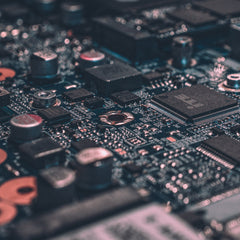The collection of data through large datasets is becoming increasingly popular among businesses. The prominence of the Internet of Things (IoT) has created a surplus of data that is now being utilized for statistical analysis. Big data analytics and IoT devices are interconnected in the sense that IoT devices enable companies to access large quantities of information. This information is then used to help gather details about the consumer and the product. IoT technology is transforming the collection of data and the information that the data provides allows for the development of more advanced IoT devices.
As more devices become connected to the internet, there will be more data that companies will be responsible for sorting through. Once IoT technology matures and becomes widely adapted, big data analytics will no longer be optional. The analytical value in having access to large datasets that are continuously updating can be substantial for any organization. Not investing in big data technology that can sort through the immense quantity of the data gathered will be a major hindrance in maintaining IoT devices. Will Hayles, a technical writer for Outscale, reinforces this concept by stating, “Without the proper data-gathering in place, it’ll be impossible for businesses to sort through all the information flowing in from embedded sensors.” This essentially means that the inability to utilize data efficiently will create obstacles in terms of competing with other IoT-based companies as analytics can provide insight into consumer wants and needs.
The integration of IoT technology and big data has the potential to create higher expectations for technological innovations. Simply being able to collect data from IoT devices will not be sufficient. Companies need to implement some sort of analytical platform that can sort through the vast amount of data gathered. Big data analytics and the IoT are interdependent. When organizations are able to access information about their products, they are able to immediately update the technology to provide new and improved content to users in addition to being able to improve any issues. Essentially the influx of data is creating a higher standard for technological innovation. Any business that does not wield the power of big data analytics will quickly lose relevance due to an inability to recognize the potential for improvement that is provided by collected data.
The adoption of big data analytics within the corporate environment is inevitable as wirelessly enabled devices begin to play a larger role in the consumer lifestyle. This change will not happen overnight, but it is crucial that organizations start to develop the analytical tools necessary to manage vast amounts of data. This means that the infrastructures of many businesses will need to be modified in order to compensate for the changing nature of IoT technology.





